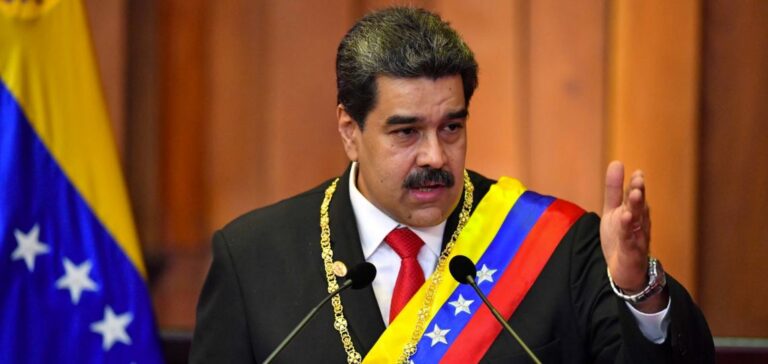Venezuela has earned about $3.5 billion in oil revenues in 2022, President Nicolas Maduro announced, noting that this figure was not even 10% of the $56 billion in revenues collected even five years ago.
“This year we are getting barely about $3.5 billion in oil revenue, less than 10% of what the country’s normal oil income was,” the president said at a ceremony with oil workers in the northwestern state of Zulia, the cradle of Venezuelan oil exploitation.
“Venezuela had an annual income of $56 billion from oil alone,” he noted.
“With the criminal sanctions and the criminal blockade of U.S. imperialism, this dropped to 700 million at one point, we lost 99% of our income,” he continued.
The United States, which does not recognize Mr. Maduro’s re-election in 2018, has imposed heavy sanctions against Venezuela.
The oil industry has suffered from these sanctions, but production had begun to decline long before, due in part to years of lack of investment, mismanagement, corruption and poor maintenance of facilities, according to many experts.
By 2020, production had fallen to 400,000 barrels per day, the level of 1934. It is currently about 700,000 barrels per day, down from 3.2 million in 2002.
Mr. Maduro has been insisting for months on the “revival” of the oil industry.
In September, he said Venezuela was “ready and willing” to “supply the world oil and gas market” as the absence of Russian crude on the market after the invasion of Ukraine in February pulled up prices.
“We are ready … to gradually and quickly increase oil production, expand and increase the production of refined products,” Maduro had said, promising to reach a production of 2 million barrels per day this year.
However, this goal seems difficult to achieve in the short term.






















